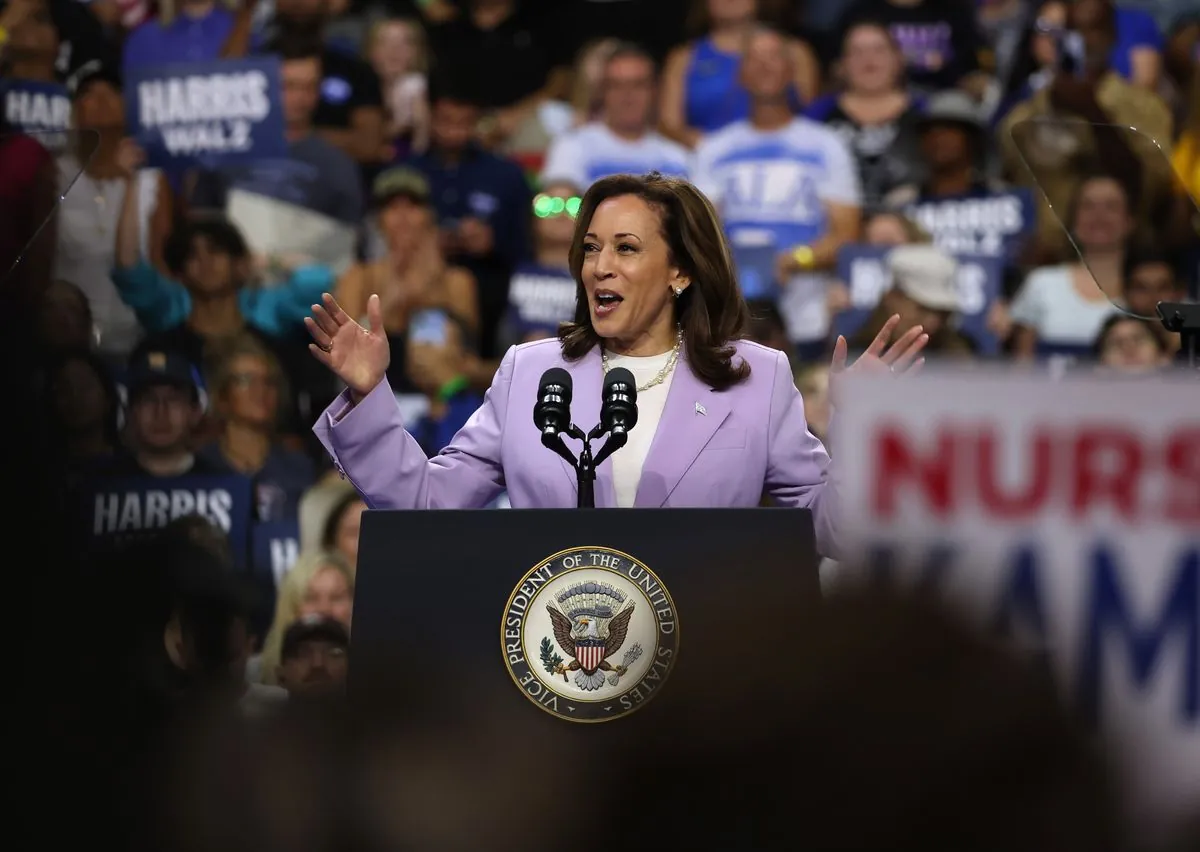As the 2024 U.S. presidential election approaches, Vice President Kamala Harris faces a significant challenge in securing Latino voter support. Recent polls indicate that Harris is struggling to match the performance of past Democratic candidates among this crucial demographic.
In Arizona, a key battleground state where Latinos constitute approximately 18.7% of the population, Harris leads Donald Trump by only eight points among Hispanic likely voters, according to a New York Times/Siena poll. This margin is considerably smaller than Joe Biden's 24-point lead with Latino voters in the 2020 election.
Economic concerns are at the forefront of many Latino voters' minds. Abe Calvillo, a 41-year-old South Phoenix business owner, exemplifies this trend. Despite supporting local Democratic candidates, Calvillo plans to abstain from voting for president due to frustrations with the current administration's economic policies.
"Never in my life have I worked this hard, and I still can't even make it."
The U.S. economy experienced high inflation rates in 2021-2022, reaching a 40-year high, which has left a lasting impact on many voters' perceptions. While inflation and interest rates have been decreasing, some voters, like Calvillo, remain unconvinced about the economic recovery.
Immigration is another critical issue for Latino voters. The U.S.-Mexico border, stretching approximately 1,954 miles, has been a focal point of political debate. Some voters express disappointment with the Biden-Harris administration's handling of immigration policies, with opinions divided between those seeking more compassionate approaches and others advocating for stricter border security.
The Harris campaign is intensifying efforts to court Latino voters in the final weeks before the November 5 election. These initiatives include a $3 million Spanish-language radio ad blitz, bilingual phone banking, and campaign appearances by prominent Latino surrogates. The campaign recognizes the diversity within Latino communities across different states and is tailoring its approach accordingly.
Young Latino voters could play a pivotal role in the election outcome. With the Latino population skewing younger, a significant number of first-time voters may cast their ballots in 2024. However, uncertainty remains about their voting intentions and turnout.
In Pennsylvania, another crucial battleground state, the campaign is focusing on Puerto Rican voters, who make up about half of the state's eligible Latino voters. Recent campaign events in the Lehigh Valley region have highlighted issues specific to the Puerto Rican community, such as ongoing support for Hurricane Maria recovery efforts.
Despite these efforts, some Latino voters feel that the campaign needs to do more to effectively reach their community. Carolina Velasquez, a 41-year-old teacher from the Lehigh Valley, noted the lack of Latino attendees at a recent campaign event, questioning the effectiveness of the outreach.
As the election draws near, the Harris campaign faces the challenge of not only maintaining but potentially expanding Latino support in key states. With the Electoral College system determining the presidential winner, even small shifts in voter preferences in battleground states could have significant implications for the final outcome.
The coming weeks will be crucial for the Harris campaign to address the concerns of Latino voters and potentially close the gap with past Democratic performances. As the election approaches, the ability to effectively engage with this diverse and growing demographic may prove to be a decisive factor in the race for the White House.
